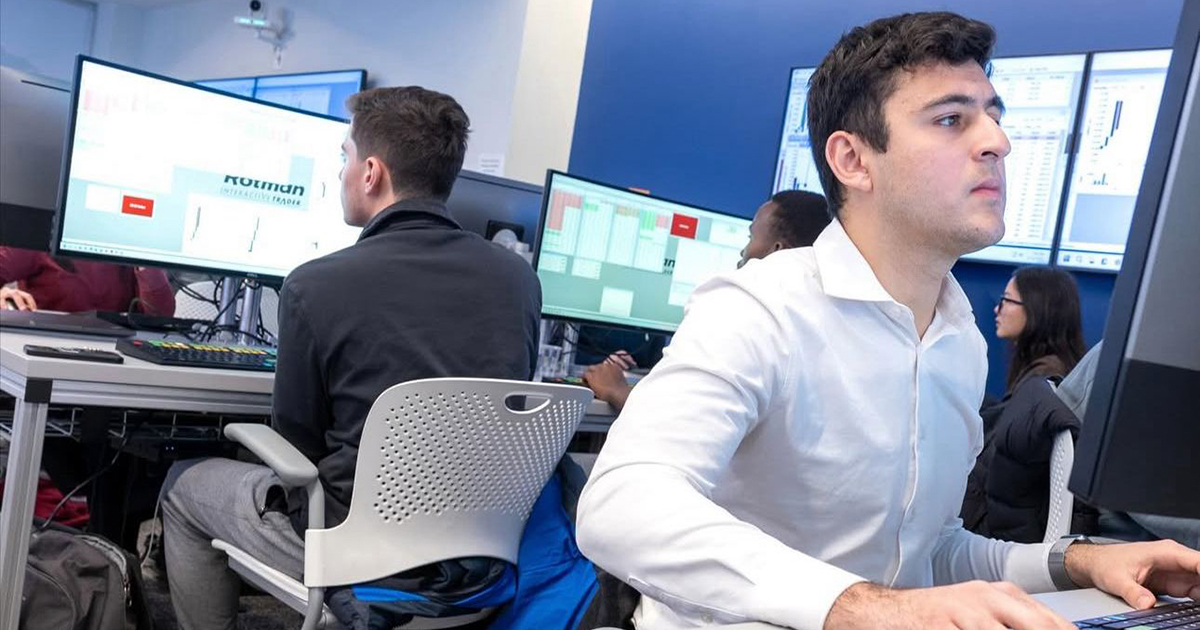The Pandemic Sparks an Entrepreneurial Boom

When the pandemic hit, Eric Girouard ’08 had a decision to make.
For two years, he had been working on his venture, Brunt Workwear, a seller of work boots, clothes, and accessories. The launch date of the business was approaching, but some of his early investors wanted Girouard to push it back a year because of the pandemic’s uncertainty.
Girouard wasn’t convinced. “They didn’t understand my customer,” he says. Girouard knew that Brunt’s core customer, construction workers, were still on the job, and that Brunt’s more affordable prices for work gear would be more appealing during a time of economic recession.
Brunt ended up launching in September. “We pushed forward even more aggressively than we had originally planned,” says Girouard, Brunt’s founder and CEO.
Brunt is just one of many, many businesses that have launched during the pandemic. Despite the tumult of the past year, entrepreneurs have not been scared away from pursuing their startups. On the contrary, entrepreneurial activity has seen a sharp uptick.
The Economic Innovation Group did an analysis of census data and found that almost 4.5 million business applications were filed in 2020, an increase of 24% from the previous year. That trend has continued into 2021, as the Commerce Department reported that business applications surged nearly 43% in January.
All of this business creation is a good sign for an economy hit hard by the pandemic.
“It’s huge,” says Andrew Zacharakis, the John H. Muller Jr. Professor of Entrepreneurial Studies at Babson College. “If you think where full employment will come from, a lot of that comes from new businesses.”
A Time for Introspection
Historically speaking, many wildly successful companies have been founded during lean times, Zacharakis says. General Electric was started during a recession in the 1800s, and Revlon was born during the Great Depression. More recently, Warby Parker and Airbnb began during the Great Recession.

Andrew Zacharakis, the John H. Muller Jr. Professor of Entrepreneurial Studies at Babson College
“There is a history of world-changing companies starting in these time frames,” Zacharakis says. “It is the next Amazon that is being born today. It is the next Microsoft that is being born today. In 10, 15 years from now, we will say 2020 is when these great companies were started.”
Multiple factors are driving the current increase in new businesses, chief among them being the large number of people who are unemployed. Unable to land a new position, many are deciding to take matters into their own entrepreneurial hands and pursue self-employment, Zacharakis says.
Others may find themselves working remotely, hanging in the house for hours upon hours. That can mean more time for home-improvement projects, as well as for taking stock of one’s life and career. “People are introspective during this time,” Zacharakis says. “That introspection may make them reconsider the dream venture they never had the time or courage to pursue.”
Ventures also may be easier to get off the ground in an economic downturn, because finding co-founders and key employees isn’t as difficult. During robust times, much good talent already is committed to satisfying jobs, but as an economy turns south, more workers can become available.
No Reservations
Not that starting a business is ever simple, and the disruption of the pandemic brings its own steep challenges. Girouard, for instance, was planning to hire a full-time team of eight employees for Brunt. Instead, he had to freeze hiring. “The existing team, including myself, had to do all of the work a team twice our size would normally do,” he says.
Girouard and his wife, Sarah Girouard ’07, were featured in a recent Wall Street Journal article, which looked at how Shopify has experienced an increase in new businesses using its subscription services, another sign of the jump in startups during the pandemic.
“It is the next Amazon that is being born today. It is the next Microsoft that is being born today. In 10, 15 years from now, we will say 2020 is when these great companies were started.”
Professor Andrew Zacharakis
Sarah Girouard also is an entrepreneur, having started a business, Early Apres, that sells winter hats. Early Apres launched two years ago, but just as with Brunt, the past year has meant adjustments. Sarah Girouard has had to place more emphasis on online promotion, as the pandemic accelerated the shift away from brick-and-mortar retail.
The pandemic also has meant more time at home, but that isn’t a bad thing. “As a result, I’ve put more time and energy into my business and my passion for entrepreneurship,” Sarah Girouard says.
As for Eric Girouard, who has long dreamed of starting a business, he has no regrets about taking the leap into entrepreneurship during the middle of a pandemic. “I jumped out of an airplane with no reservations,” he says, “and I have been teaching myself to fly on the way down every single day.”




